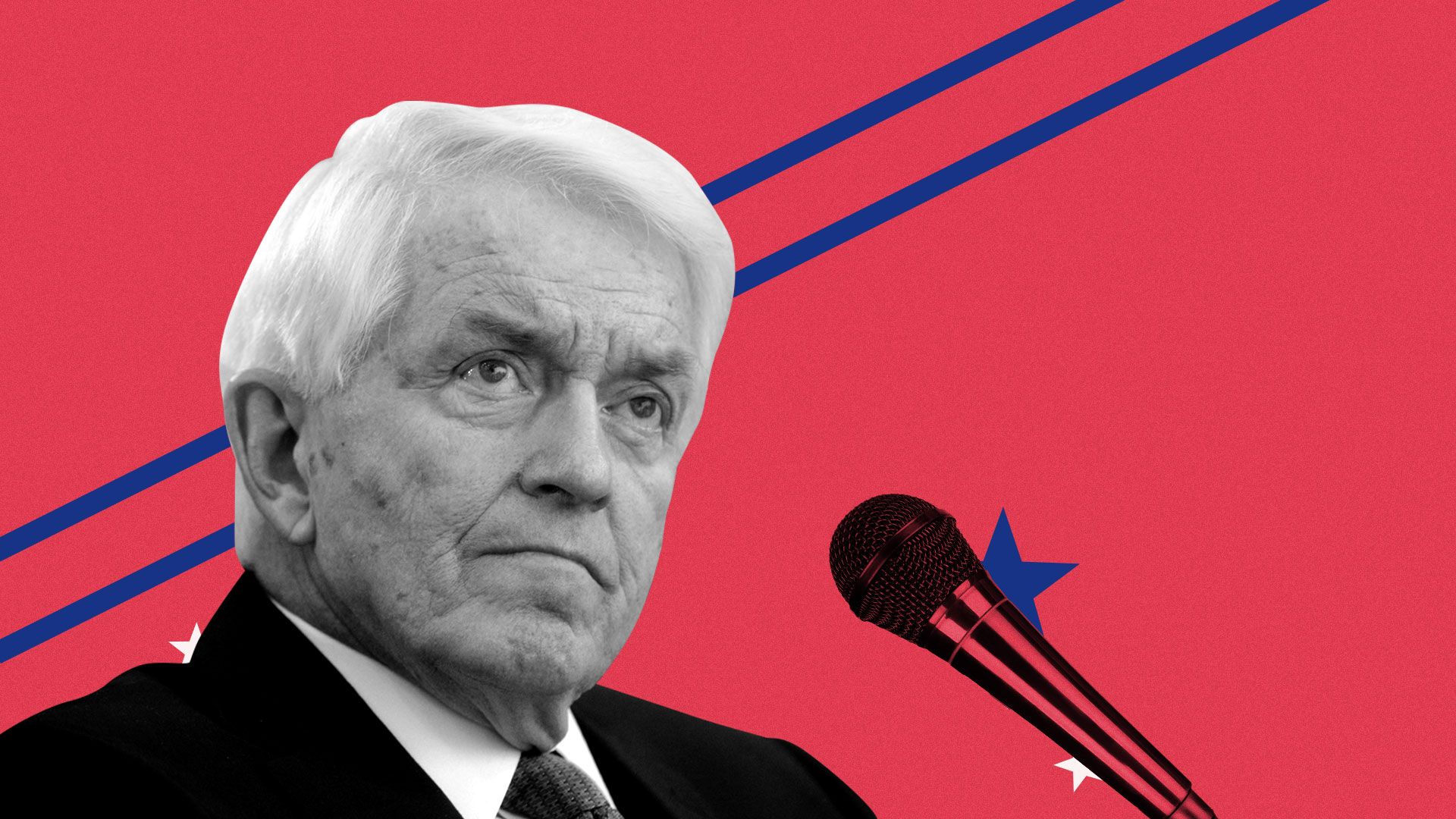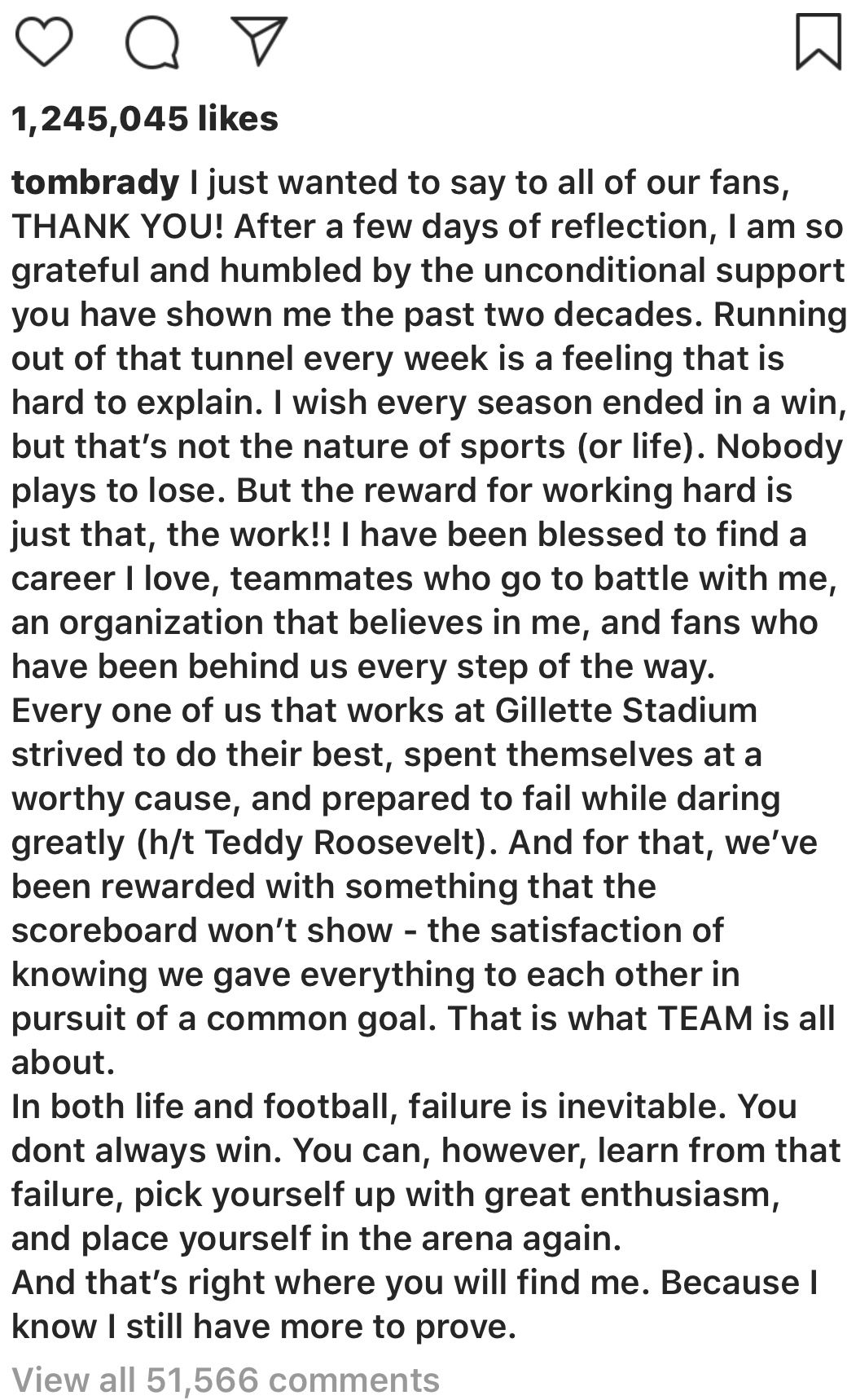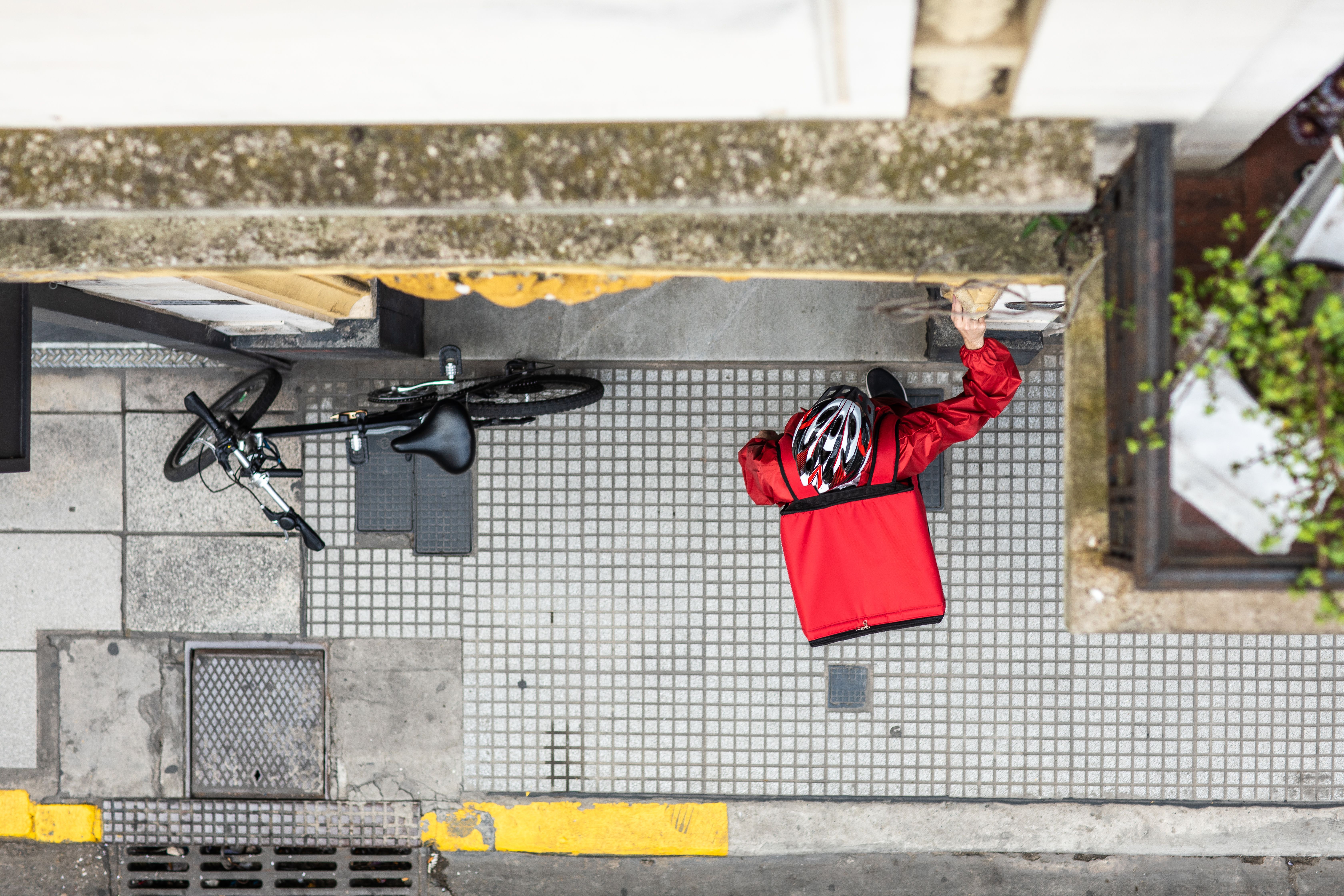January 09, 2020
🇨🇳 Situational awareness: Chinese Vice Premier Liu He will travel to Washington next week (Mon.-Wed.) to sign the "phase one" trade deal with President Trump. (Bloomberg)
- Today's Smart Brevity™ count: 1,186 words ... 4½ minutes.
1 big thing: When war pays dividends

Illustration: Aïda Amer/Axios
War. What is it good for? The stock market, it turns out, Axios' Felix Salmon writes.
- U.S. stocks sold off when faced with the specter of possible war with Iran.
- War is bad news, after all! So stocks fell after Iraq invaded Kuwait in 1990, and after 9/11.
- And yesterday, as war fears abated, stocks hit new record highs.
But ignore the gyrations.
- It turns out that over time, war tends to be good for American stocks.
By the numbers:
- The Dow rose 43% during World War I, despite the destruction of much of Europe, and it rose 50% during World War II, which was bloodier still.
- Defense spending has accounted for more than 3% of U.S. economic activity in every year since World War II. Think of it as a consistent and predictable fiscal stimulus.
Determining war's effect on the stock market isn't easy, since the U.S. is almost always at war:
- Since the end of World War II, per Eurasia Group, the U.S. has been at war in every year but 1949 and 1985.
But if you look at the wars that involved the most U.S. troops — the Korean
and Vietnam war — the stock market rose 60% and 43%, respectively.
- When the U.S. invaded Iraq in 2003, stocks rose 32% in the subsequent 10 months.
- Subscribe to Felix Salmon's weekly newsletter, Axios Edge.
2. "The worst briefing I've seen"

Sen. Mike Lee (R-Utah) called the Trump administration's classified briefing on Iran "the worst briefing ... in my nine years" in the Senate:
- "They had to leave after 75 minutes, while they were in the process of telling us that we need to be good little boys and girls and run along and not debate this in public. I find that absolutely insane. I think it's unacceptable."
- Why it matters: It's rare to see a Republican senator so harshly rebuke the Trump administration. But Lee, who was flanked by Sen. Rand Paul (R-Ky.), didn't hold back. (Video.)
After a House briefing, Speaker Pelosi announced a vote on a War Powers resolution today to curb President Trump's military action on Iran.
- Rep. Mike Quigley (D-Ill.) told Axios' Alayna Treene: "Nothing I heard, at any point, makes me think that there was something more imminent."
The other side: Sen. Marco Rubio (R-Fla.) tweeted that the briefing was "compelling" and said Trump's national security officials "answered every important question."
- Trump himself struck a de-escalatory tone: "Iran appears to be standing down. ... The United States is ready to embrace peace with all who seek it."
3. Malls' survival secret

Some big malls and shopping centers have found a way to avert the carnage befalling department-store bastions of the last century, Axios' Erica Pandey writes in our Axios Future newsletter:
- They're finding ways besides shopping to get people through the door.
American Dream — a 3 million-square-foot mall in New Jersey's Meadowlands that'll be fully open in March — is just 45% retail. The rest will be entertainment options, from an indoor ski slope to a hockey rink to an amusement park.
- That follows the opening of New York's Hudson Yards last year.
- And American Dream's developers plan a second location in Miami.
4. Pic du jour: Olympic athletes' cardboard beds

Bed frames in the Athletes Village at this summer's Tokyo Olympics will be made of cardboard (above), AP reports.
- Takashi Kitajima, general manager of the village, said the beds "can stand up to 200 kilograms" — 440 pounds, or more than even the burliest athlete.
- "They are stronger than wooden beds," Kitajima added.
The bed frames will be recycled into paper products after the games.
5. Axios on the road: Bloomberg hits the heartland

Mike Bloomberg barnstormed three Midwestern states that aren't yet drawing the 2020 pack — Illinois, Minnesota and Ohio — as a way of showing off his unorthodox candidacy and road-testing a new jobs message.
- "A computer terminal is the new pitchfork,” Bloomberg told a soybean farmer in Wells, Minn., promising expanded broadband access.
Axios' Alexi McCammond, who hit all three stops on the one-day swing, reports that the former New York mayor is courting independents and Republicans who backed Trump in 2016, but aren't feeling the economic boost they were promised.
- When discussing Trump’s character, Bloomberg avoids characterizations like "corrupt," "criminal," "dangerous" or "liar," that other Democrats have used.
- Instead, he jabs at Trump's business legitimacy, saying he "played a businessman on a TV show" but has never "actually been one in real life."
In a gaggle with reporters (invited to fly along with Bloomberg— at their expense — for the first time), he was asked if he'd release women from nondisclosure agreements with his company, as Elizabeth Warren called for.
- "She should worry about herself and I'm worried about myself," he said.
- When people or organizations make an agreement, "you can't just walk away from the legal agreements, and for all I know the other side wouldn't want to get out of that."
1 fun thing: Bloomberg, a voracious reader, favors paperbacks over tablets.
- The exception: Spanish literature, which he likes to read on his Kindle, so that he can look up words he doesn’t know as he goes.
6. Exclusive: Chamber CEO to push more bipartisan agenda

Photo illustration: Eniola Odetunde/Axios. Photo: Eric Piermont/Getty Images
U.S. Chamber of Commerce CEO Tom Donohue will use his annual "State of American Business" address today to urge bipartisan support for some issues that Democrats hold dear — including climate change and infrastructure investment, Axios Markets editor Dion Rabouin writes.
- Why it matters: The Chamber is the largest business organization in the U.S., and some of Donohue's remarks will be a departure for a group long closer to Republicans.
Donohue's remarks — provided first to Axios — will call for the passing of "35 bipartisan bills that can help address climate change through innovation and investment."
- "Inaction is not an option," Donohue, who's set to leave the organization in June 2022, will argue. "So let’s flip the conventional wisdom that nothing gets done in an election year."
Between the lines: The Chamber has begun embracing more centrist policies after differing with President Trump on immigration, trade and climate change.
- 🎧 The speech will stream live at 10 a.m. ET on the Chamber's website.
7. Survey: Top execs remain pessimistic
Chief financial officers are bracing for an economic slowdown this year, according to Deloitte's quarterly survey of nearly 150 executives at top North American companies, Axios markets reporter Courtenay Brown reports.
- 97% of CFOs say a downturn (either a slowdown or a recession) has already begun or will occur by the end of 2020.
Why it matters: Multiple surveys showed plunging optimism among top executives last year, thanks largely to trade-war uncertainty.
- Deloitte's survey shows skittishness continues to curb companies' hiring and spending.
8. 🛴 Stat du jour: Scooter mayhem
9. 🏈 Quote of the day: Tom Brady says he has "more to prove"
Tom Brady — who's out of the NFL playoffs before the divisional round for the first time in a decade, after an upset of the Patriots on Saturday — writes on Instagram:

10. 1 food thing: Kids' sneaky new trick

Kids have started using delivery apps to escape their parents' cooking, the Wall Street Journal's Heather Haddon and James R. Hagerty write in an A-hed (subscription):
- "Rita George-Tvrtkovic, an associate professor of theology living in Chicago, recently offered to make bacon and eggs for her 15-year-old son and three friends of his who had stayed the night. They said they weren’t hungry. An hour later, an Uber Eats courier arrived with a load of tacos."
Why it matters: "Teenagers say they love the sense of control of ordering up food from someone other than their parents."
📬 Thanks for starting 2020 with us. Please tell a friend about AM/PM.

